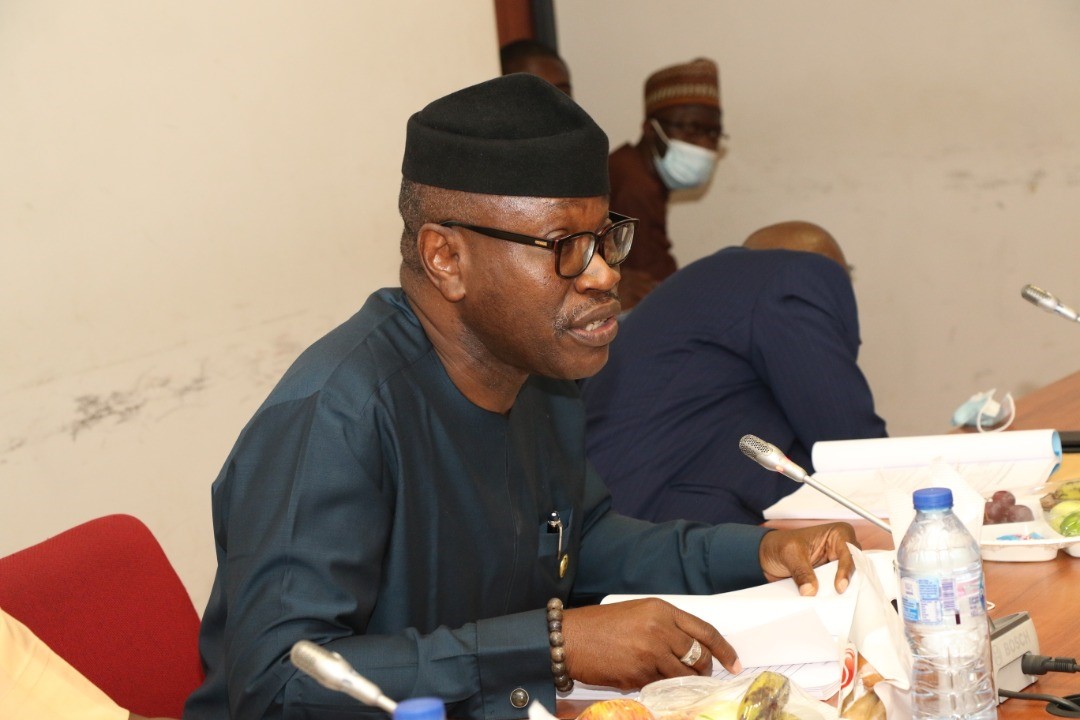The Nigerian-Indonesian Chamber of Commerce and Industry (NICCI) says further creation of industrial clusters and adoption of renewable energy sources are critical factors for manufacturing profitability and economic growth in Nigeria.
Mr Ishmael Balogun, President, NICCI, said this at the day two of the Equipment and Manufacturing West Africa 2023 Exhibition and Conference on Wednesday in Lagos.
The three-day event organised by Zenith Exhibitions is with the theme: “Reigniting Manufacturing to Drive Growth and Development”.
Balogun tasked government to become more deliberate about manufacturing sector’s needs to increase its contribution to the Gross Domestic Product (GDP) of the economy and enjoy more benefits from it.
He noted that while the country’s manufacturing sector has potential, it operates within limited capacity due to the various challenges.
He noted that the major challenges remain power generation and supply.
According to him, the country must embrace renewable energy sources, such as solar panels, wind, turbine and other alternatives to revive the manufacturing sector from comatose.
He added that government needed to further create industrial clusters identifiable to a community or locality specific area of strength.
These clusters, he said, would engender shared power supply, human and natural resources, increase in revenue and reduce crime in societies because people are gainfully employed.
“The strength of this nation includes abundant natural resources and huge trainable population. But, there is the need to relax collateral requirements and promote alternative financing models to drive industrialisation.
“Government needs to streamline and simplify regulatory processes and create stable predictable policy environment and engagement stakeholders in policy formulation.
“While Nigeria faces several challenges in the manufacturing sector, there are feasible solutions to overcome them, such as infrastructure development including transportation networks, adequate power supply, creation of industrial parks and clusters.
“Improved access to finance through specialised lending programmes and reduced interest rate would stimulate investments.
“Government must provide policy reforms that streamline regulations and provide clarity to attract investors and drive manufacturing activities,” he said.
Balogun emphasised the need for government to collaborate with the private sector to address infrastructural deficiencies, access to finance and implement policy reforms effectively.
This collaborative approach, he said, would unleash the full potentials of manufacturing in Nigeria, drive positive economic growth, create jobs and foster sustainable development.
The NICCI President restated the chamber’s commitment to partnering with several countries like Qatar, United Kingdom, Indonesia, United Arab Emirates among others, to create opportunities for Nigerian businesses and drive economic growth.
He noted that in October, 2022, during the inaugural edition of Nigerian Indonesia Trade Forum(NITF) in Jakarta, the chamber decided to address the trade balances between Nigeria and Indonesia which stood at 2.8 billion dollars.
According to Balogun, a target of 4.0 billion dollars by December was set and have currently been surpassed as trade balance between Indonesia and Nigeria is at currently 4.7 billion dollars.
“We are not relenting in our efforts but we are doubling up on creating awareness and exploring opportunities between both nations and the global village across various sectors of the economy.
“The Nigerian Indonesia Chamber of Commerce and Industry is poised to support the growth and development of our members in their quest to meet individual and corporate objectives.
“From June 14 to 21, we warmly invite everyone to join us in Bali, Indonesia; the number one tourism destination in the world for the 9th edition of the Bali beyond fair.
“In October 2023, we will invite you to join us for the 38th edition of the Indonesia Trade Expo and the second edition of the Nigerian Investment and Trade Forum due to the success of the first edition,” he said.
Mrs Adetutu Ososanya, Permanent Secretary, Ministry of Commerce, Industry and Cooperatives, Lagos, said the state government was committed to restructuring existing industrial clusters, engaging investors and development partners to facilitate energy generation for small businesses.
Ososanya said that though there were several industrial hubs in the state, they were not enough to meet the demand.
She, however, stated that the state government was in talks with partners to develop more clusters to drive industrialisation in the state.
She encouraged SME operators to move closer to the government and take advantage of all opportunities the state provides to ease their affairs.
“We have the Lagos State Ministry of Women and Poverty Aleviation, Ministry of Commerce and Industry for micro empowerment as well as providing services and equipment in various categories.
“SME operators should take advantage of the state MSME hub with various facilities and power generation. They should not shy away from working hand in hand with give.
“Government is not resting on its oars. We are committed to doing it on the larger scale and would continue to intervene to grow small businesses in the state,” she said.
Mr Joseph Oru, Event Director, EMWA, stressed the importance of private sector participation in policy formulation processes that affects manufacturing sector.
He charged corporate organisations to take advantage of the networking opportunity that the exhibition brings to drive growth.
“On our part, we are going to create a policy document filled with recommendations to drive the desired change in the manufacturing sector.
“As a country, we need to drive manufacturing, reignite our passion and commitment to the country,” he said.













